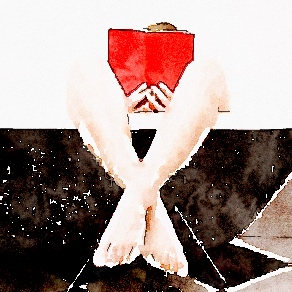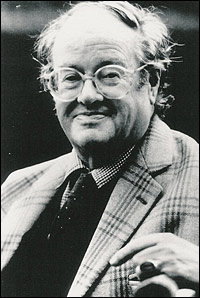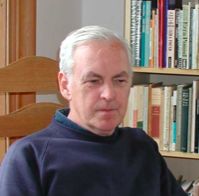Not necessarily good books, you understand! 🙂
Life Changing Books
Have you ever thought about the books that changed your life? If you haven’t, try now: I guess that immediately a handful of books will pop up in your mind. But these are not the books you want. These are the good books, the memorable books that you read and re-read and cherished over the years, the ones you talk about so much that your long suffering friends and family can finish your sentences for you. No, these are not the books that changed your life; or at least, not in most cases.
But the books that changed your life? Truly changed your life? The ones that helped form your personality and beliefs, the ones that led you to pick your career, that led you to the chance encounter with the love of your life, the ones that helped you through a personal crisis? What are the books that changed your life? They’re surprisingly hard to pin down.

The Books that Changed My Life
Here come mine (and they might turn out to be quite a bizarre collection):
Lassie Come Home
The endearing story of a faithful dog by Eric Knight, the ultimate animal adventure that has been turned into innumerable cutesy film series absolutely nothing to do with the original story.
What it did for me:
It taught me to be honest. It taught me to be honest in a way that you can actually keep it up for an entire lifetime. As the elder Carraclough demonstrates to his son, Joe, there often is a tiny wriggle room.
But only a tiny one.
Swallows and Amazons
The kids in this Arthur Ransome book are let loose outdoors – in a way that hardly any children nowadays are. In my time, we were still not as corralled, and were allowed out to explore and have fun. And we made our friendships and fought our own fights, instead of attending play dates organised by our mothers two weeks ahead.
How it changed me:
It turned me from a book reader hiding in a room into an outdoors kid, who went out to climb trees and rocks, explored the woods, crawled among the metre tall grass pretending to be an Apache sneaking up on the pale faces, swam in the river and went down to the boating lake and taught herself to row. Reading about adventures is good but living them is better. And let’s not forget what made it all possible: What would have become of the Swallows without Susan’s sturdy common sense and ability to organise? I know people who are incapable of packing a rucksack, or indeed wouldn’t even dream of carrying one.
Don’t Panic
(And always know where your towel is!
One of the many self-help books out there on the market; in no way remarkable (which is why I’m not bothering giving you the author). But it was the first I ever self-help book I read and it made me realise how stress or long term abuse affects us, how it can generate physical symptoms, and how the effects maybe only appear years later.
What it did for me:
I learned to stop my hiccups! 🙂 (Seriously.)
Stopping hiccups was actually just a side effect of my reading this particular self-help book about stress. What the book really taught me was that from learning how to stop hiccups to overcoming panic attacks, the answer is as much in our minds as in the pills our GP can prescribe us.
There are self-help books on practically everything – and obviously, some are better than others. They are worth considering as a resource when you’re up against something new. As they say, wise people learn from other people’s mistakes, while fools keep committing the same ones. Knowledge is power: once you understand what’s going on in your mind and body, in your work place or your family life, you can devise strategies to cope and to improve the situation.
Mike at Wrykin
One of those P.G. Wodehouse books that almost nobody reads or even heard of: an English boarding school story which introduces us to the character of Psmith. But it was the cricket mad title character Mike who was responsible for changing my life.
How this book changed my life:
The chapter in question contains a long cryptic description of a school cricket match which awoke an interest in me for the game. This interest led me to dedicate my MA thesis to the intertwining of cricket and nationalism in the British Empire; and the research I had to carry out to be able to write it brought me in contact with a certain number of Englishmen.
I ended up marrying one of them.
Winnie-the-Pooh
An endearing story of a silly bear that I cherished through childhood – and one that like Lassie Come Home was bastardised by the film industry – but it’s not here on its merit as a children’s book. I really, really came to appreciate Pooh Bear’s philosophy as an adult in a time of adversity, after I became terminally ill.
What it did for me:
It reminded me to try living life simply, immersing myself in the precious moment, enjoying the simple things in life, like a bit of fresh bread, the sunshine on my skin, the spring breeze in my hair, refusing to worry about something that might never come to pass.
The Japanese call this Zen and surround it with rituals and teachings that are meant to help you to acquire the habit of living the good life. I wish I cultivated the skill earlier; I would have had a happier life, with less worries. But it’s never too late and you don’t have to learn to meditate either…
On Liberty
Well, now, a political-philosophical essay, and I don’t like either politics, or philosophy…
But I grew up in a Communist country where access to information was limited and a free discussion of political opinions was not recommended if you wanted a quiet life. The result was that at the famous ‘change of the system’, as the fall of communism is referred to in Hungary, my political views were hazy in the extreme. I knew what I disagreed with but was unable to articulate what I believed to be right; I had no coherent picture in my mind as to what the world should look like. And then I picked up this slim volume in a foreign language bookshop in Budapest, in the early 1990s. And the world suddenly fell into place. The 19th century English philosopher and member of parliament (and an early champion of women’s suffrage), John Stuart Mill, knew how to put into words the ideas which I was only groping for.
What it did for me:
It provides the ethical background to everything I do and believe in. It gave me a yardstick too against which to measure if I come across a particularly puzzling ethical dilemma. I try to live my life according the principles John Stuart Mill articulated so clearly: live and let live.
Others
There might be others; in fact, I’m sure there are. But these came to mind for now; a strange little collection.
Have you got any books that you feel that had a lasting impact on how you live your life? Please leave a comment below and explain why.
Links (Lists of life changing books):
⇒ 10 Life Changing Books That Stay With You
⇒ 27 Books That Can Change Your Life Forever
⇒ 30 Classic Books That May Change Your Life













